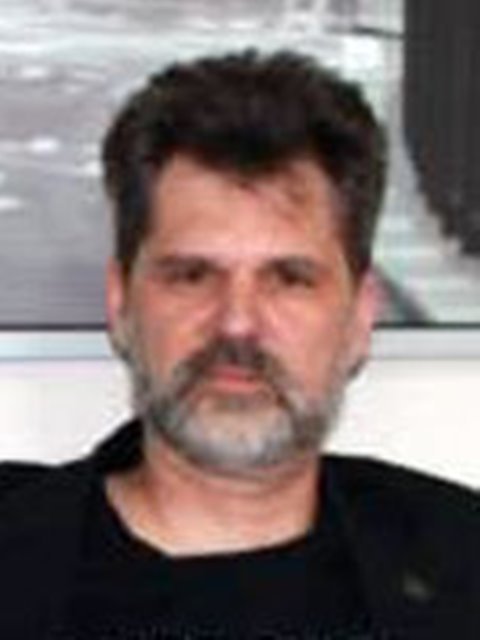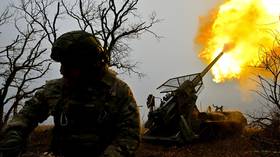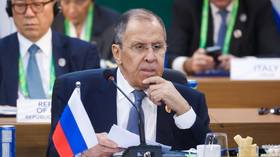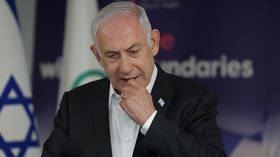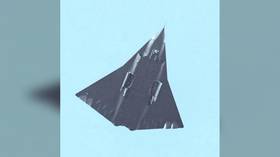The end of "Secular Turkey" or Ottomans re-emergent?
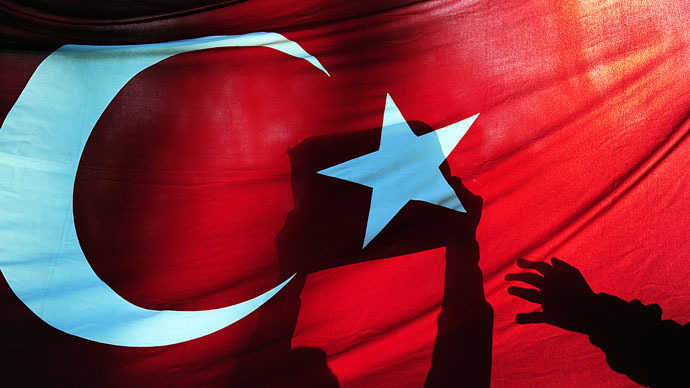
On the international scene Turkey is playing a high stakes game, trying to transform itself into an international energy hub as vividly illustrated by the recent rapprochement between Recep Tayyip Erdogan and Russia's Vladimir Putin.
Domestically however, the current government seems more concerned with the spiritual well-being of the people under its care and the spread of Islam in the nation.
Yet, in spite of the Turkish government's apparent interest in cultivating a pious and even virtuous image, in 2013 the country's ruling elite was rocked by a graft and corruption scandal commonly referred to as #AKPgate.The scandal, initiated by two waves of arrests on the 17 and 25 December 2013, brought the ongoing power-struggle between the government led by Erdogan's Justice and Development Party (or AKP) and the so-called Hizmet Movement out into the open. As a political party based on a firm foundation of Islam and free enterprise, the AKP had previously enjoyed the support of the social networks affiliated with the figure of Fethullah Gulen (known as the Hocaefendi or ‘Master-Lord’) and his arguably shadowy movement, now called Hizmet.
This cozy relationship secured wide popular backing for Erdogan and his cohorts. But following the corruption charges, Erdogan and his associates started claiming that Gulen's acolytes had formed a secretive "parallel structure" within Turkey's state apparatus with the intent of undermining its very structure and workings - a charge echoing accusations made in 2000. At that time, the public prosecutor Nuh Mete Yuksel charged Fethullah Gulen with having perpetrated "activities to set up an organization for the purpose of founding a state based upon religious rules.” Turkish society throughout the nineties was very much concerned with what could be termed "religious reaction,” as expressed in the now largely forgotten archaic Turkish term irtica. The prosecutor Yuksel then even referred to Gulen as "the leader of a secret organization,” an outfit that aimed to establish a “theocratic Islamic dictatorship” in Turkey.
Intra-Islamic rivalry inside a "secular" system
The current power-struggle between the AKP-led government and the Hizmet Movement, or to bring the tussle down to the personal level, between the president and the Master-Lord, seems like an aberration in a Turkish context - after all, Turkey throughout the 20th century had been dominated by the long shadow of Mustafa Kemal Ataturk and his far-reaching reform movements that transformed Turkey into a paragon of modernity in the Middle East and a beacon of 'democracy and secularism' in a sea of 'reactionary Islam' or backward Muslim dictatorships.
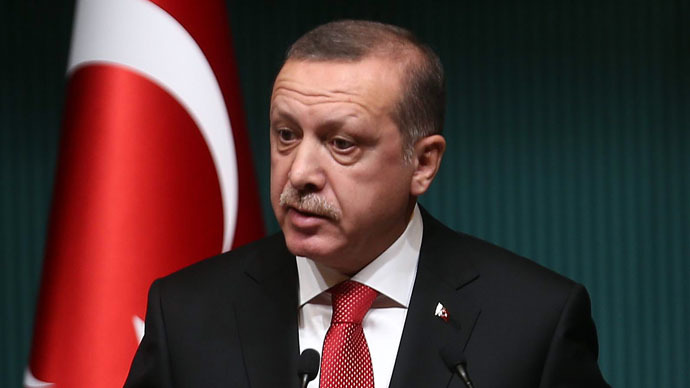
The common consensus was that, in Turkey, the issue of religion (meaning Islam) had been relegated to the private sphere and that public life was dominated by the various right- and left-wing strands of political discourse well-known in moderate and less moderate societies elsewhere. Nevertheless, the issue of irtica or "religious reaction" was a highly charged, even emotive, topic throughout 20th century Turkey.
The Republic of Turkey was founded in 1923 as the successor to the Ottoman Empire, the self-proclaimed leader of the (Sunni) Muslim world as the home of the Caliphate. In contrast, the Republican base was firmly entrenched in the ideology of nationalism, Turkish nationalism, and this philosophical framework largely replaced the religion of Islam as a source of communal identity for the ethnically rather mixed population groups of Anatolia.
But rather than being the outcome of an organic personal experience, the religious life of Turkey's people was in reality largely controlled by the state by means of the Directorate of Religious Affairs (or Diyanet, in Turkish). At the same time, however, the authorities actively promoted a permissive attitude towards Islamic restrictions and regulations (such as the prohibition of alcohol and the obligation of five daily prayers). And as a shorthand, people at home as well as abroad referred to this Kemalist project advocating a lenient state of affairs as constituting "Turkish Secularism" (called laiklik, in Turkish after the French laicité), as vividly illustrated by the much-respected BBC announcing in 2007 that the "modern Turkish state was established on strict secular principles.” And the Constitution stipulated that the Turkish Army was supposed to act as the ‘guardian of Turkey’s secularism’, hence the numerous military coups and interventions in post-war Turkey. A salient and fairly recent example of such military meddling was the so-called "Eighteen Recommendations" issued by the National Security Council (SNC) on 28 February 1997 (known in Turkish simply as 28 Şubat). This military intervention has been characterized as a Post-modern coup and led to the resignation of Turkey's first Islamist Prime Minister Necmettin Erbakan.
In early January 1998, Turkey's constitutional court even banned Erbakan's Welfare Party (or RP, Refah Partisi in Turkish). Following this successful military intervention against Turkey's creeping Islamization, Turkey's Armed Forces next issued a so-called E-memorandum (in Turkish, e-muhtıra), published on the internet on 27 April 2007, in an effort to influence the election of Turkey's president. This last "virtual" military intervention contained the following declaration of intent: "It should not be forgotten that the Turkish Armed Forces are a[n] . . . absolute defender of secularism . . . Those who are opposed to Great Leader Mustafa Kemal Ataturk . . . are enemies of the Republic of Turkey and will remain so.”
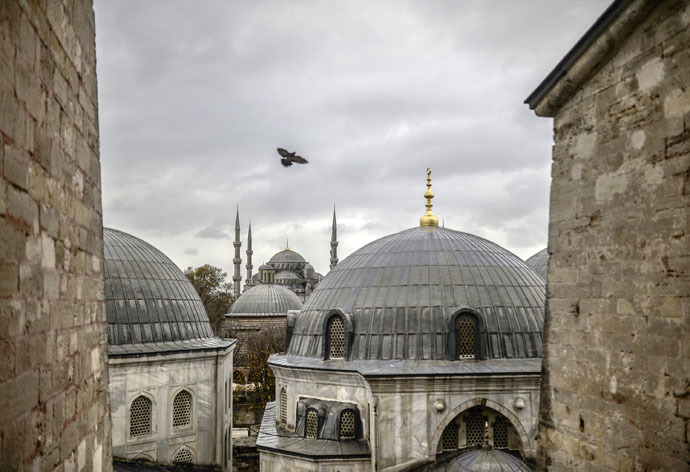
Islamic re-awakening, 1982-2014: Piety through education
In spite of the Turkish Army's above-cited readiness to defend Ataturk's legacy (or the Turkish status quo, if you will), I would argue that the military coup of 12 September 1980 in many ways laid the groundwork for a re-emergence of Islam in Turkey's public life and a concomitant growth in displays of piety in the wider nation and its leadership.
As I wrote earlier: the 12 September coup leaders introduced "a new constitution in 1982 and in the present context, this legal document's 24th article appears particularly poignant. The article starts off with the phrase, “Everyone has the right to freedom of conscience, religious belief and conviction,” but then also contains this section: “Education and instruction in religion and ethics shall be conducted under state supervision and control. Instruction in religious culture and moral education shall be compulsory in the curricula of primary and secondary schools", and "it would [thus] appear that the military coup's indirect outcome was to challenge the very doctrine that General Evren and his henchmen set out to defend. In 1994, 12 years after the new constitution was introduced, Necmettin Erbakan's pro-Islamic Welfare Party came to national prominence and… today's AKP under Recep Tayyip Erdogan is but the apparent heir to the long-since-banned RP.”
In other words, I would argue that, in an effort to placate the wider population (or pacify the masses) and stem the rise of political violence that in the course of the 1970's had reached near-civil war proportions, the Turkish Armed Forces let the genie out of the bottle. It might even seem possible that in the then-current Cold War context, the Turkish Army acted in accordance with Zbigniew Brzezinski's scheme of utilizing Islam as a weapon against Communism. The above-quoted relatively recent military interventions - the 1997 28 Subat and the 2007 e-muhtıra - were belated attempts to reverse this trend, but by then the momentum had become irreversible and the current AKP-led government is now busy putting the Islamic cherry on top of the proverbial Turkish cake.
As persuasively illustrated by the 1982 Constitution, the best way to influence the future behavior of a population is through tampering with the education system. In December 2013, the 19th National Education Council (or Sura) took place in the coastal city of Antalya and during that meeting a momentous 179 "recommendatory decisions" were taken.
Those included the introduction of religious courses into the curriculum of primary schools. Whereas, middle school pupils undergoing training to memorize the Quran (known as hafızlık in Turkish) would be able to leave school for the duration of two years but will still be allowed to sit exams. At the same time religious instruction in high schools will be doubled, while the teaching of the history of Turkey's reforms and the principles of Kemalism in middle and high schools will be subjected to a critical revision more in line with a contemporary understanding and current needs. But the most spectacular "recommendation" or decision was arguably to turn the instruction of the Ottoman language (Osmanlıca, in Turkish) into a compulsory course for vocational religious high schools as well as social science high schools.
Turks turning Ottoman: 1994-2014
These "recommendations" will undoubtedly leave their mark on the children that will be attending school in the coming years. These pupils will learn about religion (Islam) all throughout their school-going years, which will arguably mean that they will become well-versed in Islamic doctrines, beliefs, and practices later on in life. But the fact that the instruction of the early history of the Republic of Turkey and the principles of its founding father, Mustafa Kemal Ataturk, will be reinterpreted and adapted to contemporary conditions probably means that the emphasis will now be laid on continuity rather than change - the continuity between the Ottoman period and the current Republican age.
Whereas traditionally, history education in Turkey was primarily aimed at highlighting the novel and progressive aspects of the Republic of Turkey, much to the detriment of the preceding Ottoman period, generally portrayed as a backward time when the people at large had been subject to the regressive influence of Islam and the arbitrary rule of despotic sultans. In reality though, over the past two decades (particularly following the RP's meteoric emergence in 1994), public opinion in Turkey has very much re-appropriated the Ottoman past. While the teaching of the history of Turkey's reforms and the principles of Kemalism was but an arguably somewhat outdated educational tradition symbolizing the continued westward orientation of the nation and its leadership. On the other hand, the introduction of classes in the Ottoman language seems like heavy-handed attempt to re-orient Turkey's population to its religious roots, but not necessarily to its past.
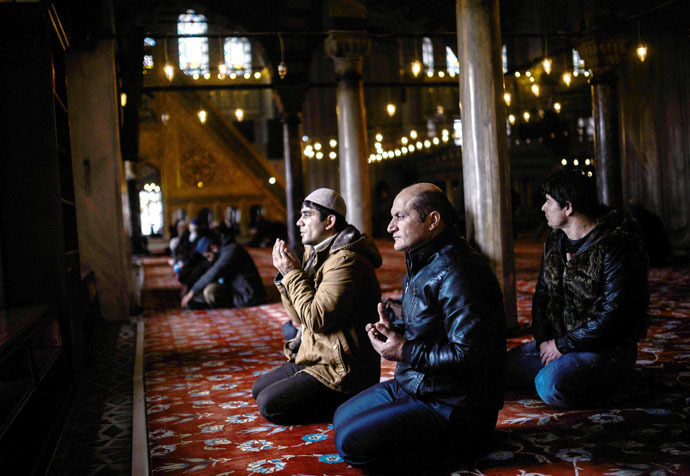
The introduction of the new Turkish Latin alphabet in November 1928 ensured that Turks would more readily look towards Europe and the West than to their Arab and Muslim neighbors in the East. Throughout Turkey's Kemalist period (1923-2002), the terms Ottoman and Islam were used interchangeably, and in the current post-Kemalist era, ushered in by the AKP, this attitude has not changed. But instead of a negative stigma, the current political leadership of the country presents the Ottomans' adherence to Islam as a positive trait meant to transform the Muslim creed into an even more attractive proposition for Turkey's wider population, arguably alienated from their pious roots by means of years of Kemalist indoctrination and a permissive attitude towards Islamic restrictions and regulations. As a result, it seems to me that these classes in the Ottoman language are more like a backdoor to learning the Arabic alphabet, which is a prerequisite for reading the Quran.
Rather than training pupils in learning a dead language comprised of three separate tongues (Turkish, Arabic, and Farsi) and ill-suited to the quick pace of modern life, these classes will guarantee that every pupil (and subsequent adult incarnation) will in future be able to go to the Holy Book and read its hallowed lines for him- or herself. And the end result of this exercise in educational engineering (for want of a better term) will arguably be that future citizens of the Republic of Turkey will identify themselves primary as Muslims (or Neo- or Pseudo-Ottomans, if you will) rather than Turks.
The Ministry of Education has sent 39-page fascicles to the Governors’ Offices in all 81 provinces across the country, containing an outline of a new moral education program to be taught in schools nationwide. The Turkish daily Milliyet reported that these documents contain such pious phrases like "death is a blessing according to our faith. It means salvations from the heavy burden of living," and that “patience protects moral chastity,” lines clearly meant to inculcate deep Muslim feelings of predestination and resignation into the hearts and minds of Turkey's malleable pupils.
Back to the future: Turkey 2023
As I have written quite some time ago, "opponents of Erdogan and the AKP now fear that the government’s long-term goal (as arguably expressed in the AKP’s policy statement Hedef 2023) is to transform the nation state Turkey into an Anatolian federation of Muslim ethnicities, possibly linked to a revived caliphate. In this way, Turkey’s future (as a nation state) would arguably become subject to Anatolia’s past as a home to many different Muslims of divergent ethnic background. The fact that Erdogan’s oft-repeated reference point is the first assembly of what was to become Turkey’s parliament on 23 April, 1920, seems to render strength to such contentions. The first assembly consisted of representatives of Anatolia’s Muslim population, the then-Kemalist constituency, who had pledged allegiance to the Ottoman Sultan-Caliph, Mehmed VI – two years later, the transformation of Anatolia’s Muslims into Anatolian Turks begun in earnest.”
And now in 2015, the de-construction of the Anatolian Turks into Anatolia’s Muslims of different ethnic strip united under a Muslim and/or possible Neo- or Pseudo-Ottoman banner seems to have been put into motion by the President and his AKP state apparatus, and particularly, the Ministry of Education. The New Turkey now being built is clearly no longer looking towards Europe and the West, as vividly illustrated in last year's final SNC chaired by the ‘Prez’ Erdogan in his new White Palace, with the assembled military dignitaries sitting in a room where the traditional portrait of Mustafa Kemal Ataturk is only prominent by its absence.
The statements, views and opinions expressed in this column are solely those of the author and do not necessarily represent those of RT.
The statements, views and opinions expressed in this column are solely those of the author and do not necessarily represent those of RT.
